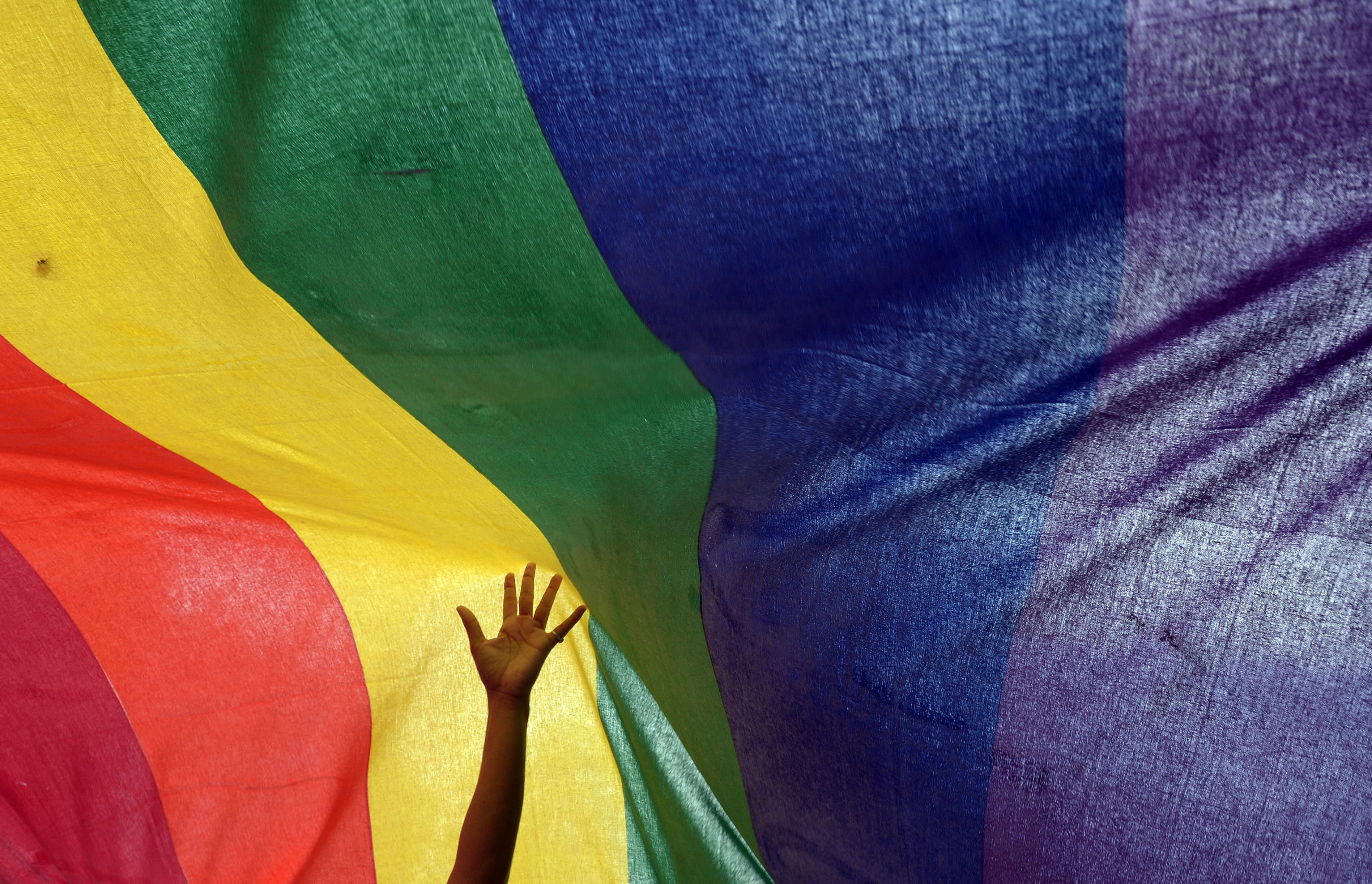
A two-judge bench cancelled a Delhi High Court ruling in 2009 that section 377 of the Indian penal code prohibiting people from engaging in "carnal acts against the order of nature" infringed the fundamental rights of Indians.
"It is up to parliament to legislate on this issue," Judge G.S. Singhvi, the head of the two-man bench, said in the ruling which found the ban to be constitutionally valid.
The Delhi High Court decision was strongly opposed by religious groups, particularly leaders of India's Muslim and Christian communities, who appealed to the Supreme Court.
"Such a decision was totally unexpected from the top court. It is a black day for the community," Arvind Narayan, a lawyer of the Alternative Law Forum gay rights group, told reporters.
"We are very angry about this regressive decision of the court."
Protests were expected later Wednesday from the gay community that is still largely closeted but was emboldened by the 2009 ruling.
Though prosecutions under section 377 are rare, conviction carries a fine and a maximum 10-year jail sentence and it is used by police to harass gay couples, activists say.
"We will explore all options, probably look into the option of a review petition," T. Tandon, a lawyer appearing for Naz Foundation, a non-profit group that works with HIV-AIDS patients, said outside the court house.
"The movement of gay rights is so much stronger now. It is not 2001, it is 2013. You can't have a decision like this."
Dominic Emmanuel, spokesman of the Delhi Catholic Archdiocese, said before the verdict that the church was ready to accept any decision from the Supreme Court.
"Though we did not welcome the decision of the High Court, we did not object to it. If there is a decision like that from the Supreme Court, we will not object to it either," he told the NDTV network.
"The church has a very clear stand on people with different sexual orientations. Though they are different from ... normal people, they should be respected, accepted and there should ne no signs of discrimination against them."
Gay sex has long been a taboo subject in conservative India, where homophobic tendencies abound and many still regard homosexuality as a mental illness.
In recent years, however, the country's gay community has raised its profile, organising gay pride marches in major cities such as New Delhi and Mumbai which have created awareness and encouraged many to come out of the closet.
Jeffrey O'Malley, director of the United Nations Development Programme on HIV/AIDS, had argued in 2008 that decriminalising homosexuality would help India to combat the spread of HIV/AIDS.
India has an estimated 2.5 million people living with the virus.
COMMENTS (31)
Comments are moderated and generally will be posted if they are on-topic and not abusive.
For more information, please see our Comments FAQ












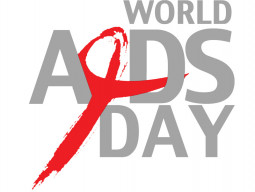
1710998259-0/pti-(1)1710998259-0-270x192.webp)
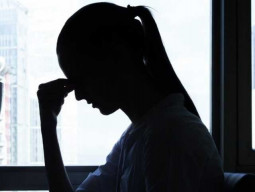
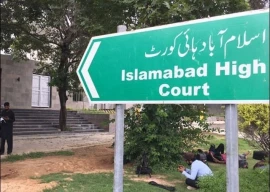

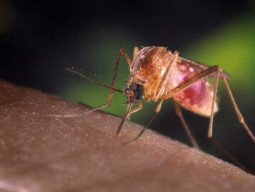






















So much for human rights now, ey? In the largest democracy....and you now bring "preserving culture" into the equation? funny
@Devil: There are real people involved, not a volleyball between court & parliament. There was no need to enact anything; decriminalisation requires defanging of an antediluvian provision, not its amendment. For e.g. it was common practice under laws inherited from Raj to impose collective fines on an entire population of a district for disturbances caused by a few. High Court of Patna did not wait for any amendments from Parliament but struck down that provision in 1954 as unconstitutional & that judgment set the precedent. The 1860 law (Sec 377) that clashed with today's concept of human rights of a group of citizen needed to be read down, which is what High Court had done earlier. Interpreting of an old law as per contemporary mores & customs is not only within the domain of court but its duty too. Judicial decisions, judgments even opinions impact the ever evolving common law & courts are not averse to playing knights in shining armour, as they must, to sufferers who may be current focus of society. Who cares for gays in a conservative society? Here the Court did not crown itself in glory by mentioning that section 377 affects only a minuscule minority. Apart from being statistically ill informed, the court also seems to be insensitive to those that are "minuscule" in numbers. Highest Court in the land is supposed to protect the fundamental rights of the smallest number too.
It was a great judgement not because of the issue of Homosexuality, but because of the fact that the court upheld the exclusivity and singularity of the Parliament alone in legislating and enacting laws.
In a democratic state, laws are to be legilated by Parliament alone, as legislation are a political exercise and should only be enacted by the political representatives of the people. It is not the job or the domain of the court (an unelected and unaccountable body) to legislate.
@water bottle "What happened in Vedic times, do you really know?" no body can say with surety "what happened in 700 ad" how can one tell about vedic time.
@1984:
I like the second part of your argument.
@1984:
"The Vedic Indian culture has no punishment for homosexuality….Strange u talk of Western culture…."
Vedic Indian culture has no punishment for millions of things that are considered illegal today.
What is the relevance of Vedic Indian culture here? If you wanted to counter another's inane arguments, you could have just said, India has not persecuted such people for thousands of years.
What happened in Vedic times, do you really know?
@Pakiiiiii:
What if the social minorities are Gay in pakistan and would you protect them, dont cry crocodile, first look at actual minorities issues in pakistan
Very Sad day indeed..... A decision which at best can be called a product of Medieval mindset. Seems we need hard to mainstream the rights of LGBT in our judicial system. We expected something better and progressive from our judiciary................
Sad day for the minorities of our country.
@np: your analytical part is right. factual part is not. its not article 377 of indian constitution , its section 377 of Indian Panel code which dates back to 1861 and its a colonial rule.Indian Parliament chan change or amend this. Untill this ruling is there courts 'll give decision based on these laws.
thumbs down. (BTW im not a gay)
Hope some or many Indians who don't agree with this verdict start blaming Pakistan for this, by the way I myself don't believe in punishing homosexuals.
I wonder if this verdict is going to cause another blow to the career of Abhishek Bachchan, not to forget Dostana 2 is in the pipeline. Wonder if Junior Bachchan will be whining and crying somewhere in his home.
@Indian: The Vedic Indian culture has no punishment for homosexuality....Strange u talk of Western culture....But its because of the influence of 2 Western cultures( One from Arabia and one from Vatican)..Homosexuality has become a crime....Ironically the concept of "Dancing boys" and Church crimes happen in the same cultures....
Its time we stopped listening to the rules of the invaders and start behaving as son of soil....
FYI,I dont support homosexuality and I'm as straight as a rod....But I support the simple rule "live and let live"
Great decision
@Indian: Who told you that gay x is against 'our' culture ? Its been as old as the Vedas itself .Dig around our history and you will find many such cases . Its there even in Greece / Italian / Jap cultures. People were only more closed about it thousands of years back. Looks like we have not moved even one inch after thousands of years on this topic . Sigh .... Sadly ... Some things never change .
Sad day for Indian democracy. It had taken a huge step in 2009, all of which was undone today.
I think its a very sick decision / judgement . The more the rules, the more the loop holes , the more the counterfeit market. Think of the thousands trapped in their circumstances . They will go deeper and deeper into their shells. Please revoke this . Make it legitimate.
The Supreme Court's judgement was 'right' in the sense it was "constitutionally valid" as rightly pointed out in the article above. There is a need to make certain amendments in the Constitution, which will require the politicians taking this issue seriously and raising it in Parliament. Until then, homosexuality is 'criminal' and/or 'illegal' in India.
Sibal has said today in a PC that they will amend the law for sexual minorities. SC has asked legislators to take responsibility and amend the law. India can never do such injustice to its minorities.
Congratulations on this good decision
Kind of a setback.
Now I don't think Congress will ever dare amend the constitution lest they lose Muslim and Xian votes.
BJP is even worse, lest they enrage the swamis, sanyasis, sadhus and sages.
I doubt it will be amended in the next 50 years.
@Indian
The guy writing as 'Indian' is actually a Pakistani. Sad but true.
@Indian "anything against the culture should be made illegali"
No two persons have the same culture- a multifaceted paradigm. Sex is also as diversified as species. Homosexuality has existed before any admissible culture traits. Whose culture is legal and whose is illegal. Such sectarian attitude is called FASCISM.
Once again half literate majority deciding for all. Gay attitude is a physiological problem. Nobody is only man or only woman- in the brain. Just as you cannot ask a midget to behave like a tall person or vice-versa, you can not ask a Gay person to behave like a man or woman. Whether a person is man or woman is dependent on the hormonal environment in the womb, which can change over the 9 months of pregnancy. While sexual organs are formed first few months, the neural connectivity in brain which defines the sex of the brain comes after. If the hormonal secretion in the womb changes over the 9 months of time as it happens always to various degrees, a person may have physique of one sex and brain of the other sex. Most natural gay persons who are not comfortable in their bodies belong to this category. Having said brain sexuality varies from one person to another and we get various shades of personalities. But unfortunately laws are made by the majority assuming that minority should define 'morality' in the same way.
Democracy should be about protecting and ensuring the rights of the minorities rather than imposing the decisions of majority. Sad day.
Where are the Indians now lecturing us Pakistanis on human rights?
good decision............ even though doesn't matter.....convictions rare...........